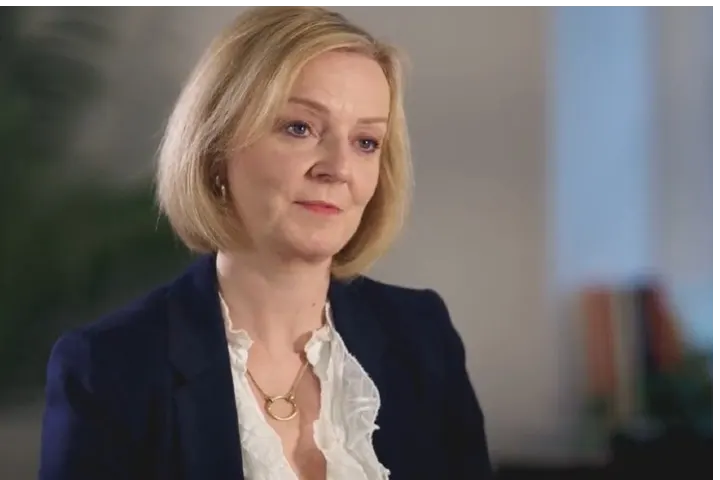

British Prime Minister Liz Truss (Image courtesy: IANS)
India will go into a trade pact with the UK only if it is mutually beneficial. While UK in the post Brexit phase is looking to expedite the inking of the proposed free trade agreement (FTA) with India, New Delhi will weigh the pros and cons carefully after British Home Secretary Suella Braverman damaging statement that Indian migrants make up for the “largest group of people who overstay” in the country.
The Telegraph said that the British want Indian trade. “But it doesn’t want Indians,” it added.
British Prime Minister Liz Truss has been eager to ink the FTA. Truss, who was earlier International Trade Secretary under former PM Boris Johnson signed off on the India-U.K. Enhanced Trade Partnership (ETP), which laid the foundation for the negotiations.
Several non-trade issues related to labour, government procurement, environment besides visa regime under the Migration and Mobility pact could also come up as challenges to the ongoing negotiations.
India as part of the pact, among other things, sought greater access to its skilled workers.
Sources in New Delhi said that India will exercise “extreme caution” to ensure that the trade agreement is fruitful for both countries even as British foreign minister James Cleverly quickly jumped into the fray as a damage control exercise.
“We do want to have an even stronger, and it’s strong already, but an even stronger trading relationship with India,” he said.
“We must carefully weigh all pros and cons before signing the agreement. Seemingly there doesn’t seem to be much advantage in terms of trade in goods, and we also have to be sufficiently cautious about non-trade issues, and also the fact that we must make them agree to relax norms for movement of natural persons…. we must remember that the earlier FTAs that were signed have not borne fruit,” Ashwani Mahajan, national co-convenor of Swadeshi Jagran Manch told India Narrative.
India, already irked by Britain’s protectionist policy for its steel industry, has lodged an objection with the World Trade Organisation.
In November 2020, India exited the much hyped Regional Comprehensive Economic Partnership (RCEP), saying that the agreement would be detrimental to the Indian manufacturing sector as it would have to face stiff competition with a surge in imported goods.
While in the past, India entered into several free trade agreements, including one with the ASEAN (Association of Southeast Asian Nations) block, the deals have not been successful from India’s point of view with increased imports.
Commerce and Industry Minister Piyush Goyal has reiterated that trade agreements between countries must be “fair and balanced”.
Also read: British Hindus protest against The Guardian’s coverage of Leicester incidents
Germany has come out resolutely behind India and its fight against terrorism under Operation Sindoor.…
Baloch leader Mehran Marri has accused Pakistan of unlawfully occupying Balochistan since 1948, transforming the…
The Trump administration announced on Wednesday that it will continue its efforts to prevent advanced…
External Affairs Minister S Jaishankar met with German Chancellor Friedrich Merz in Berlin on Friday…
The Central Tibetan Administration (CTA) launched a Month-long Panchen Lama Awareness Program aimed at educating…
India's Ambassador to Russia, Vinay Kumar, on Friday, briefed the all-party parliamentary delegation, led by…